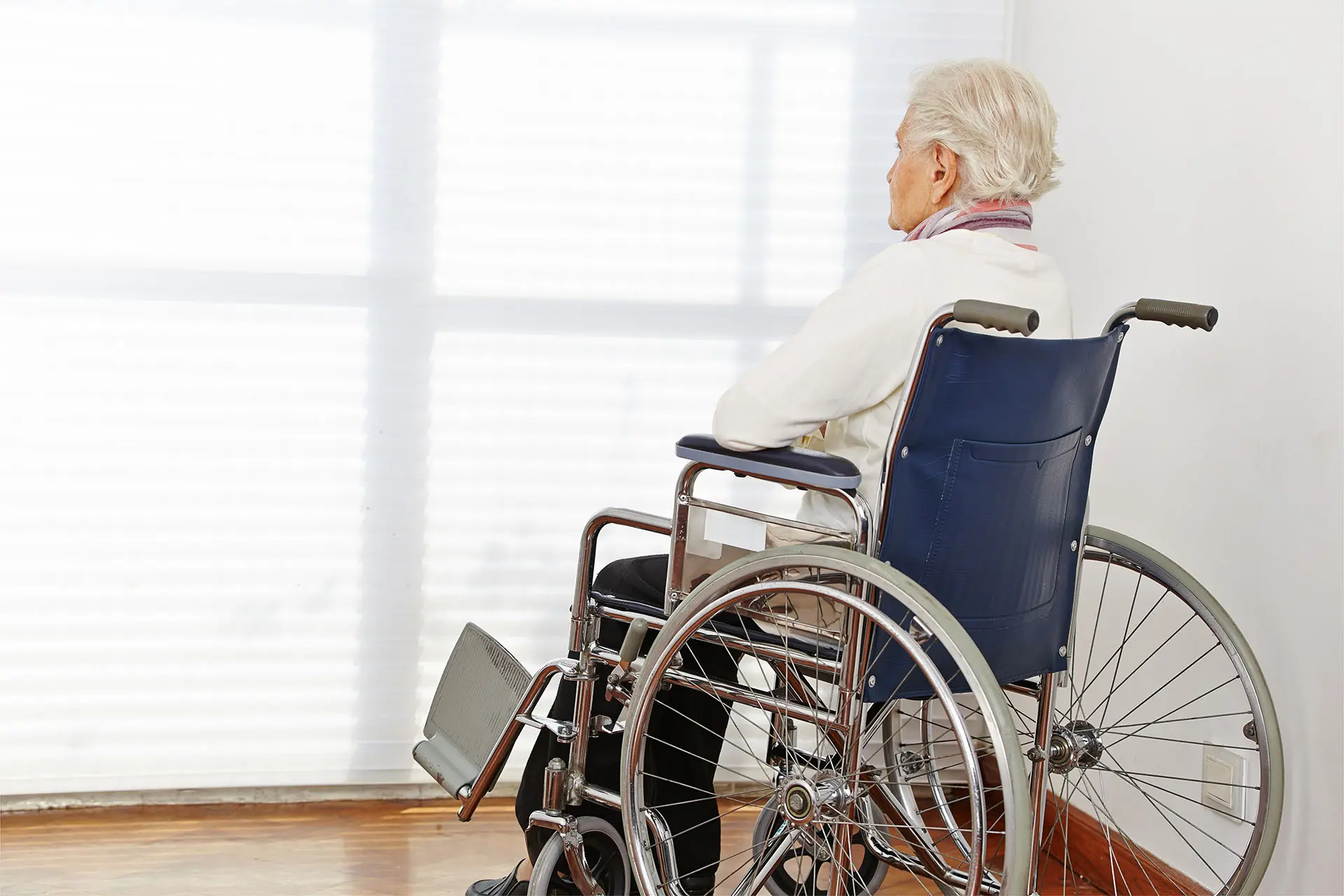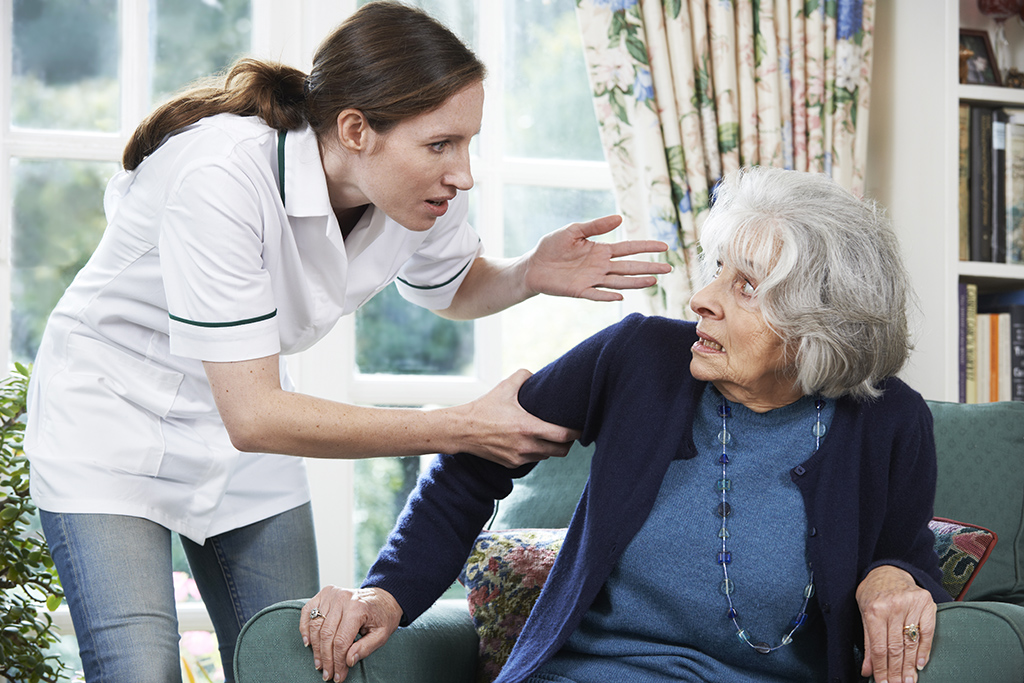Nursing Home Abuse Attorney
South Carolina Nursing Home Attorney
Deciding to place your loved one in a nursing home or long-term care facility is a difficult decision that can cause you a tremendous amount of guilt and stress. If you live in South Carolina, you may also feel worried about how your loved one will be cared for. That’s because studies have shown that South Carolina ranks dead last in protections against elder abuse in nursing homes. Our state ranks so poorly in abuse, neglect and exploitation that there are more complaints per resident here than in any other state in the country.
At the Law Offices of Wilkerson, Jones & Wilkerson, our South Carolina nursing home abuse lawyers know that you would do anything to protect your loved one from harm. Learning that your loved one has been a victim of abuse by the very people you trusted to care for them, can be gut wrenching. During this time, we offer compassionate and aggressive legal assistance every step of the way, and we work tirelessly to hold abusive caregivers and negligent institutions accountable for their actions.
Signs of Nursing Home Abuse
There are numerous types of abuses that can occur in a nursing home setting. Seniors are at an increased risk for sustaining serious injury and harm due to their increased vulnerability and inability to defend themselves from abuse. If you notice these signs of abuse, it is important to act quickly to prevent your loved one from further harm.
- Physical Abuse – unexplained bruises or broken bones, scars, or signs of restraints could all be considered signs of physical abuse. Seniors may also act fearful around their caregivers or regress emotionally. Broken aids, such as eyeglasses, hearing aids, or walkers are also signs that your loved one might be suffering abuse.
- Emotional Abuse – verbal abuse can be detrimental to seniors as they age. Yelling, shouting insults or treating seniors like children can all be forms of emotional abuse. If you notice regression, social isolation, withdrawn behavior or depression and anxiety, your loved one might be suffering from emotional abuse.
- Sexual Abuse – stains in underwear, tears or bruises on genitals or breasts, and vaginal or anal bleeding are all signs of sexual abuse. Suddenly contracting a venereal disease or infection is another sign.
- Financial Abuse – any sudden change in finances, such as missing money, unexplained withdrawals or changes in wills or power of attorney could be a form of financial abuse. Seniors are at a significantly increased risk for suffering this type of abuse due to decreased cognitive abilities and often times dementia.
- Neglect – when caregivers fail to provide care to their patients, they can suffer serious harm. If you notice unclean or unsanitary living conditions, bedsheets, or clothes, unusual weight loss or dehydration, or bed sores, your loved one could be suffering from serious neglect.

Seniors are often afraid or reluctant to get their caregivers in trouble or they may simply not wish to be seen as needy or weak. As such, many incidents of abuse go unreported. If your loved one tells you that they are being abused or suffering neglect, believe them.
Unfortunately, on many occasions nursing home patients cannot speak for themselves. In these situations, a family member needs to be appointed to act on their behalf. In South Carolina, if the patient experienced conscious pain and suffering resulting in death—the most serious cases of South Carolina nursing home abuse—the estate’s personal representative can bring a survival cause of action against the nursing home.
Common Causes of Nursing Home Abuse or Neglect
There are a number of scenarios where it may be necessary to file a nursing home abuse and/or neglect case. Common causes of nursing home abuse and neglect include:
-
Inadequate staffing
Abuse and neglect are more likely to occur in poorly staffed nursing homes. These nursing homes may lack the staff to take care of the needs of patients. -
Poor training.
Nursing home staff must receive adequate training to take care of the basic and medical needs of patients. If staff members do not receive proper training or lack medical credentials, they may provide patients with substandard care. Poor hiring practices may also increase the risk of nursing home abuse or neglect. -
Poor sanitation.
Sanitation is crucial in any type of health care setting, especially a nursing home. Many nursing home patients are at higher risk of developing an infection due to advanced age or possibly having a compromised immune system. -
Fraud
Nursing home staff may sometimes take financial advantage of patients, most of whom are unable to care for themselves.
Reporting Nursing Home Abuse
South Carolina state law requires anyone with knowledge of nursing home abuse to report that abuse. The Vulnerable Adults Investigations Unit of the South Carolina Law Enforcement Division, in affiliation with SC Department of Mental Health, handles reports on state-run agencies. Case reporting for non-state agencies should be made to the Long Term Care Ombudsman Program. In a case involving death, any person with a reasonable suspicion that a person died due to the abuse or neglect by a nursing care facility has a duty to inform the coroner or medical examiner of the death and the suspected cause.
In most cases of physical abuse, mental abuse, or neglect committed by a nursing home employee, an expert witness will need to testify on behalf of the victim. This is often because the victim suffers memory loss or dementia and would be unable to articulate the cause of the injury that he or she sustained. Additionally, an expert witness may be required to testify that the act or failure to act was below the standard of care for a particular care facility.
Different facilities may have different standards of care depending on their designations, such as nursing homes versus assisted living. An expert witness will usually be a medical professional or doctor who testifies to a reasonable degree of medical certainty that the nursing facility deviated from the standard of care required, and that the injury was proximately caused by the negligence.
Can You Sue a Nursing Home for Abuse?
You may be able to sue a nursing home for abuse and/or neglect. In some cases, you can file a civil lawsuit against the facility to recover compensation for damages caused by the abuse or neglect. There are requirements for bringing a lawsuit against a South Carolina nursing home. You must be within the statute of limitations. Once you are beyond the statute of limitations, you can no longer file a lawsuit. In some cases, it may be possible to toll the statute of limitations.
You must also be able to demonstrate that abuse, neglect or negligence harmed your loved one. Certain types of evidence, such as medical records and witness statements, can strengthen your claim against the nursing home.
Our South Carolina nursing home abuse attorneys can help you determine whether it is possible to file a lawsuit during a free consultation.
Nursing Home Abuse Attorneys FAQ

Nursing homes have an enormous responsibility to the public. These facilities are responsible for caring for our loved ones who are too old or disabled to care for themselves. In many cases, nursing homes meet the challenge to provide essential services to the elderly and disabled. However, there are instances where nursing homes violate our trust and harm our loved ones. Despite having a responsibility for caring for society’s most vulnerable populations, there are instances of nursing homes taking advantage of or abusing patients.
If your loved one suffered abuse or neglect at a nursing home, then you may be looking for information on what to do next. Depending on the circumstances, it may be possible to hold the nursing home accountable for their actions or inaction.
Below, our South Carolina nursing home abuse attorneys answer some of the most common questions about nursing home abuse and neglect.
What Are Common Signs of Nursing Home Abuse and Neglect?
There are several potential signs you should consider looking for if you believe your loved one is suffering abuse or neglect at a nursing home. Signs of nursing home abuse and neglect may include:
- Bed sores. Patients who are unable to move by themselves have to be moved by staff on a regular basis. If staff fail to move patients out of a stationary position after a long period of time, those patients may develop bed sores. In some cases, bed sores can become infected.
- Fractures or head injuries. Blunt force trauma injuries may be a sign of nursing home abuse. Be on the lookout for brain injuries, broken bones or fractures.
- Malnutrition or poor hygiene. If your loved one is showing signs of malnutrition or extreme weight loss, it could be a sign of nursing home neglect. Poor hygiene and infections can also be a sign of abuse or neglect.
- Behavioral problems. If your loved one is showing signs of extreme fear, or is more withdrawn than usual, it could be a sign they are suffering abuse. Your loved one may also be unusually quiet or reluctant to speak in a certain staff member’s presence.
- Other unexplained injuries. Cuts, abrasions or bruises can sometimes be a sign of abuse or neglect.
What Are the Different Types of Nursing Home Abuse or Neglect?
There are different types of nursing home abuse and/or neglect.
- Physical abuse. One of the most common types of nursing home abuse involves assault, such as shaking, punching or slapping.
- Financial abuse. Some nursing home patients may have mental health or cognitive problems that make self care impossible. In some cases, nursing home staff may take financial advantage of patients with these conditions.
- Emotional abuse. Nursing home staff may direct shouting, yelling or insults at patients. Emotional abuse can also lead to mental and physical health problems for some patients.
- Sexual abuse. Due to many nursing home patients suffering debilitating conditions that affect movement or cognition, they may be at a higher risk for suffering from sexual abuse.
- General neglect. Nursing home staff must take care of the needs of patients. In cases of neglect, staff may withhold essential care for patients, such as by not providing food, hygiene or essential medical care.
Can I Sue a Nursing Home?
Nursing home abuse and neglect is against the law. If abuse or neglect occurred, nursing homes may be responsible for the damages patients or their family members suffered. You may also be able to file a lawsuit against a nursing home for medical malpractice.
You may be able to recover compensation for your loved one’s damages if they suffered harm in one of the scenarios above. However, with medical malpractice, you may be able to file a lawsuit against the home for failing to provide medical services within the accepted standard of care. Your loved one would have to suffer damages as a result of the insufficient care.
Whether you can sue a nursing home also depends on whether you are within the statute of limitations. In South Carolina, the statute of limitations for a medical malpractice lawsuit is generally three years from the date of the incident.
Our South Carolina personal injury law firm can help you determine if you would be able to file a lawsuit against a nursing home. We offer free initial consultations. It does not cost money to reach out to us to discover whether you have legal options to pursue compensation.
Contact Our Nursing Home Abuse Lawyers in Rock Hill, SC for a Free Consultation
At the Law Offices of Wilkerson, Jones & Wilkerson, our South Carolina nursing home abuse attorneys know that protecting your loved one from future harm is what matters most. That’s why we work tirelessly to prevent future abuse from occurring by holding abusers and negligent institutions accountable.
Call us today at :
With offices conveniently located in Rock Hill and Lancaster, we are here when you need us. Call our Rock Hill personal injury attorneys today for a free case evaluation.
Contact Us Today
Enter your name and email to access the free guide

Get Our Free Guide
Get Our Free Guide
Get Our Free Guide
Get Our Free Guide
Get Our Free Guide
Get Our Free Guide
Get Our Free Guide
Get Our Free Guide